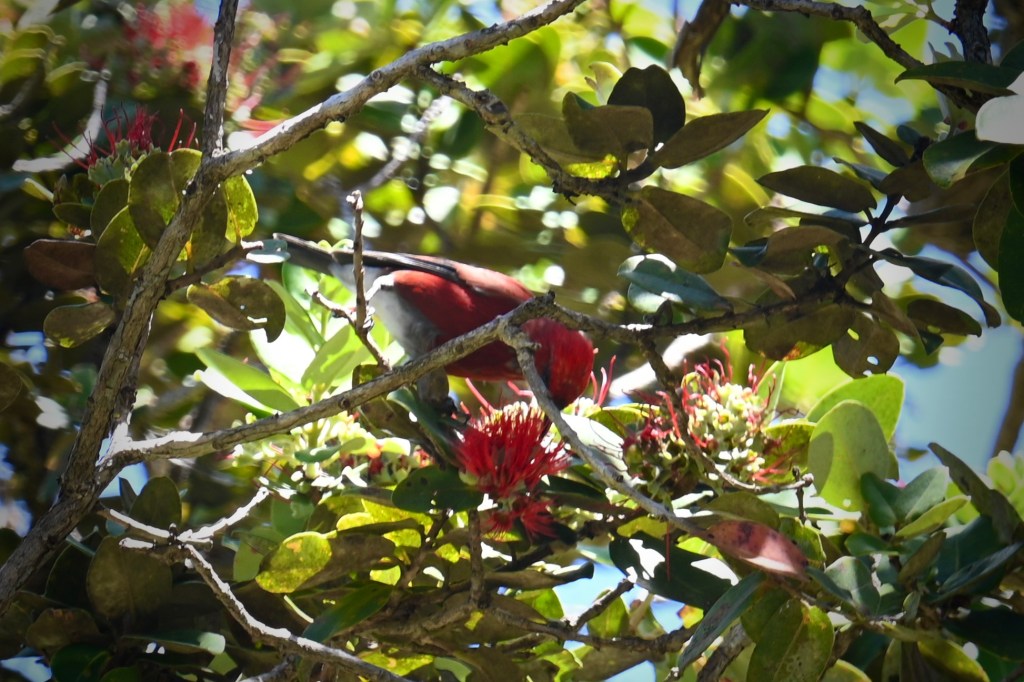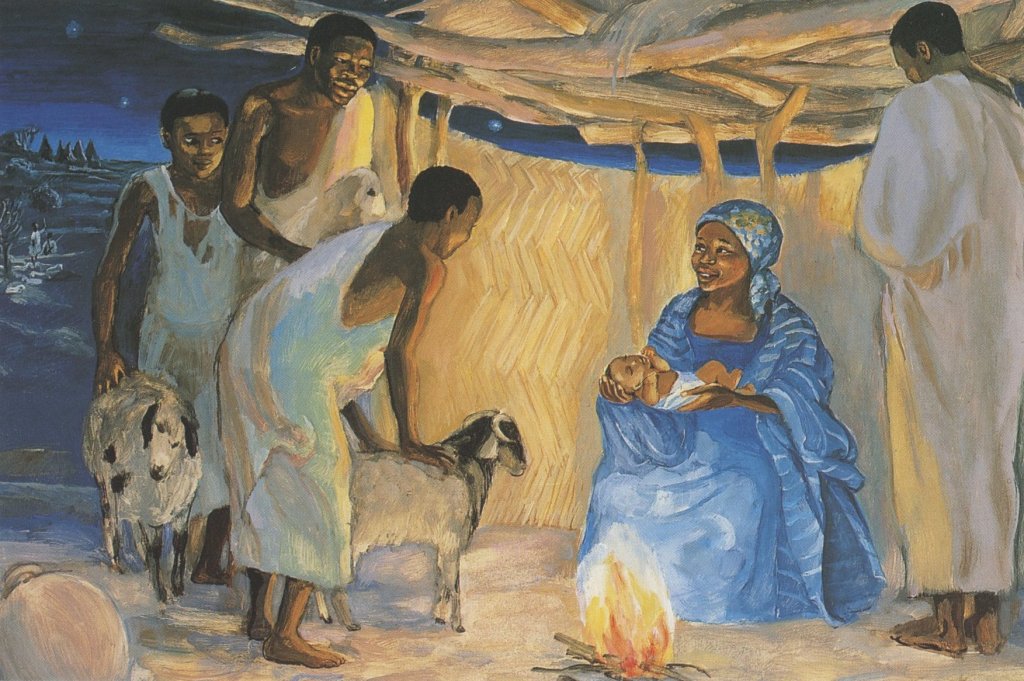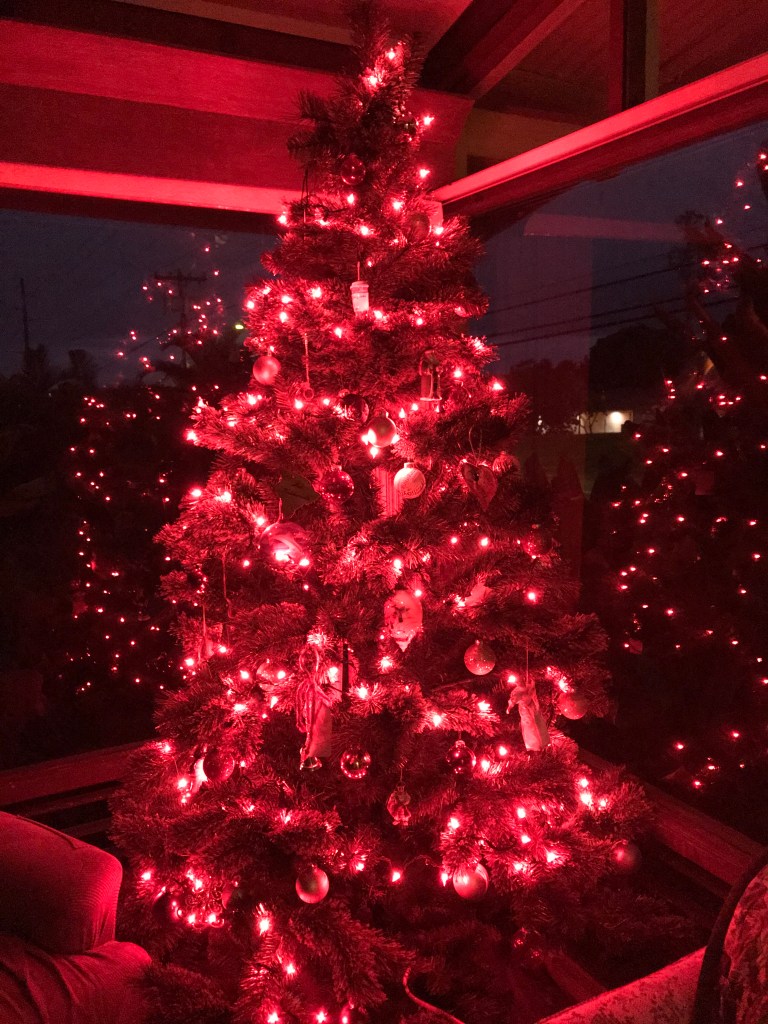
December 24, 2023
2 Samuel 7:1-11, 16
Luke 1:26-38
Last week you gave us a wonderful Christmas pageant. It was touching. It was funny. There was a lot of wonderful cuteness. Thank you. This story is about somebody else’s Christmas pageant. The ‘apapane’s Christmas pageant.
I don’t know how it came into the ‘apapane’s head to organize a Christmas pageant. I don’t even know how he’d heard about Christmas, let alone a Christmas pageant. Nevertheless, he flew around the forest, recruiting creatures who would take parts in the pageant.
He asked the i’iwi, who was feeling grumpy that day and didn’t say yes or no, nothing at all. He asked the i’o, which was pretty brave of him, and the i’o said she might come and looked… hungry. He asked the ‘amakihi and the ‘elepaio and the ‘akepa. They said they might. He even asked the palila in her mamane grove and spoke to a big flock of mynas. That set off an argument among them that wasn’t over when he went to talk with the mejiro.
The honu said no, because she wasn’t going to swim up to the ohi’a forest, which seemed fair. The koa’e kea insisted on playing Mary, because shouldn’t Mary have a long tail? The noio said he’d think about it. The mice looked nervous, and the mongoose looked puzzled. The pig in the forest said, “I’ll come.”
When it was pageant time, it was chaos. Creatures would step into the clearing he’d selected, then fade back into the trees again. Frightened chirps flew back and forth, and so did frightened birds. The mynas insisted they be the angel chorus, then exploded in another argument. The pig alone took its place in the clearing and announced, “I’ll play the pig in the stable,” which was a problem because there weren’t any pigs in the Bethlehem stable, but then he went to sleep.
“What do you need to calm down and play your parts?” asked the ‘apapane in exasperation.
One of the little ‘akepa hopped out. “Is the i’o here?” he asked.
“Yes,” said the i’o from the tree above him.
“Are you going to eat us?” asked the ‘akepa.
For a moment there was silence. Then: “No,” said the i’o. “Not today. Today we’ve got a pageant to do.”
The ‘apapane spent the next hour answering the question of each creature. The koa’e kea wanted to be Mary, so she was. A noio played Joseph after being assured that this wouldn’t take so long that he couldn’t go back to fishing later in the day. The mongoose promised the mice not to eat them, and they were duly cast as sheep and, believe it or not, shepherds. The i’iwi didn’t want to cheer up, so he became the grumpy innkeeper. The sleeping pig played a sleeping cow, and did it very well. The i’o, circling high above, took the voice of the angel Gabriel.
The mynas were relieved they wouldn’t be the only voices in the angel chorus, which stopped the argument, and they were joined by ‘apapane, ‘amakihi, and mejiro in their song, which echoed through the forest and down the mountainside. ‘Akepa brought the gifts of the magi. A young palila, such a rare bird, played baby Jesus.
When it was over, the creatures vanished back into the trees, leaving the ‘apapane alone in the silence. He’d answered every question, met every need, somehow.
The trees rustled in the darkness, applauding the ‘apapane’s Christmas pageant.
by Eric Anderson
Watch the Recorded Story
I probably should have taken a piece of paper with me when telling this story today, because there were a lot of creatures and I lost track of who wanted to do what, but this is the story as I told it this morning and I hope you enjoy it.
Photo by Eric Anderson.








